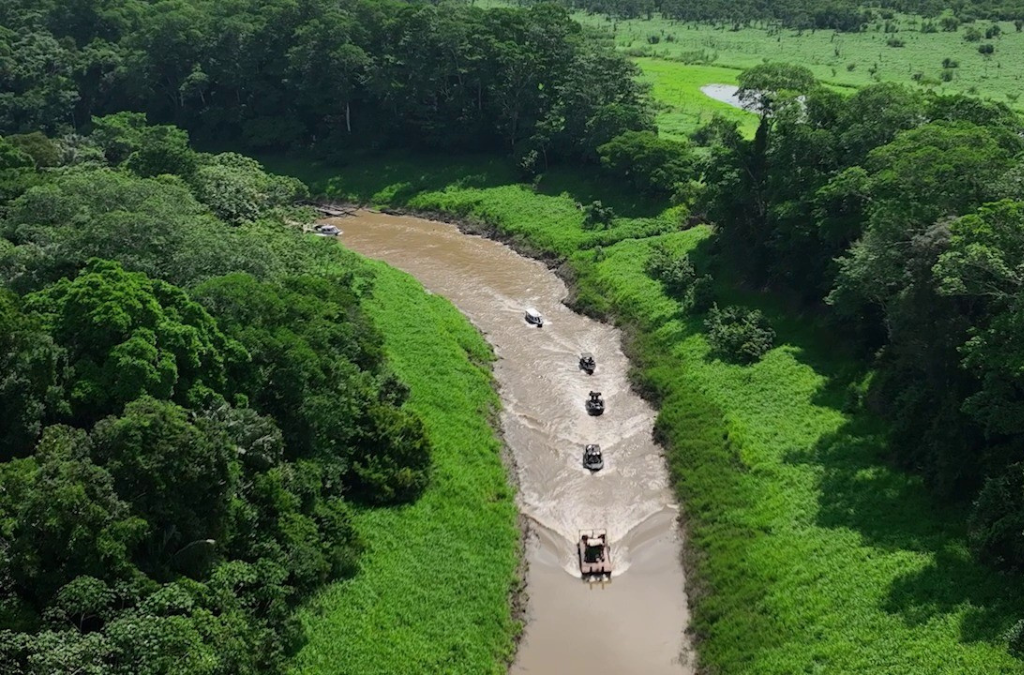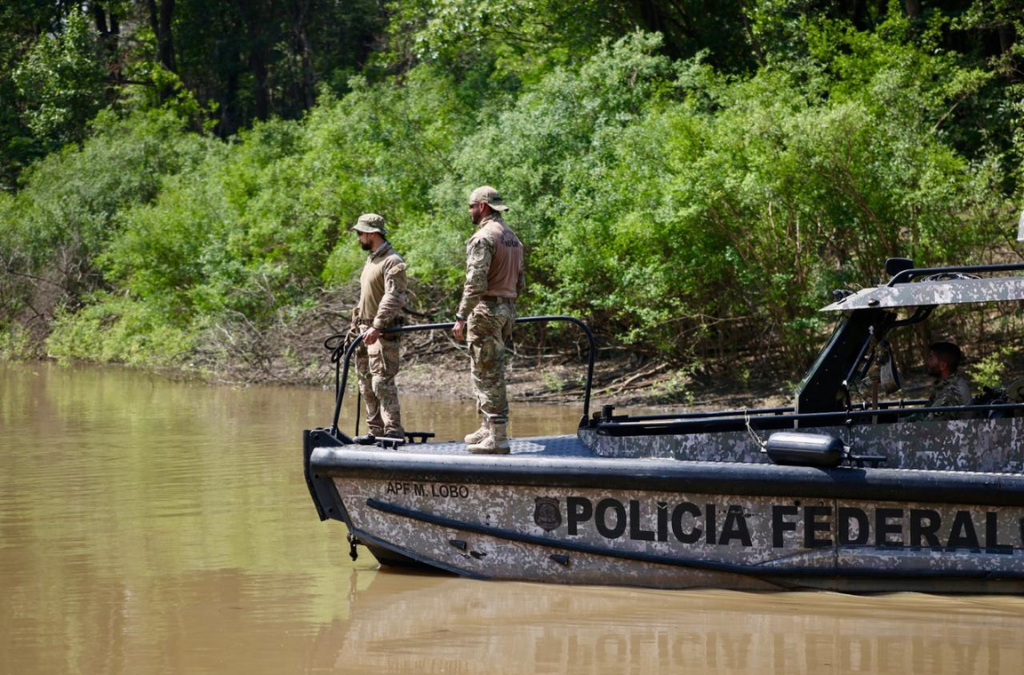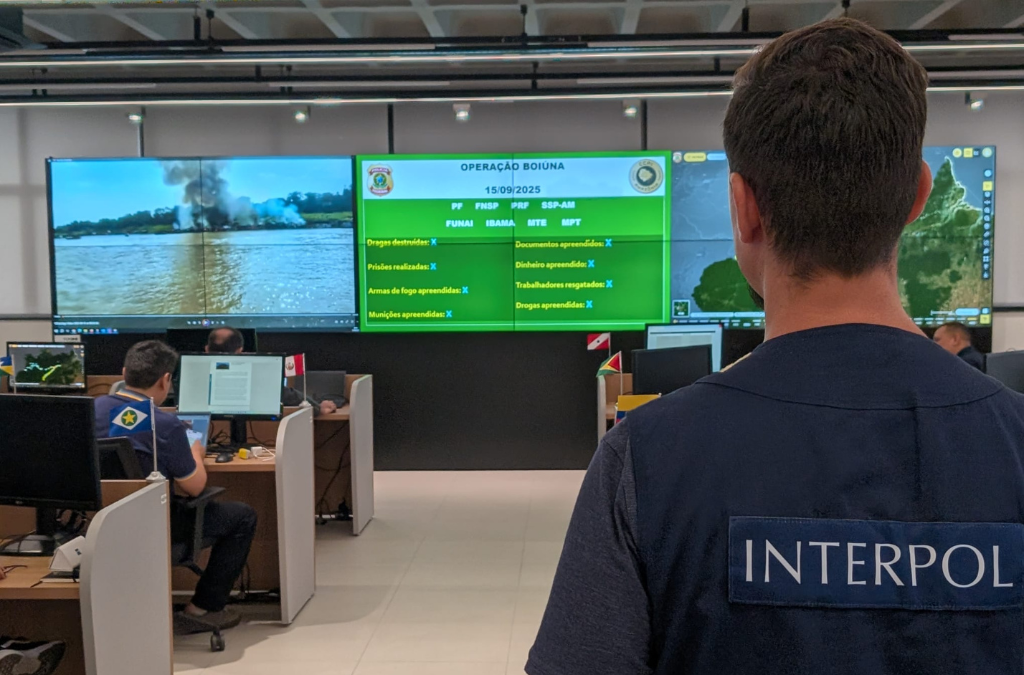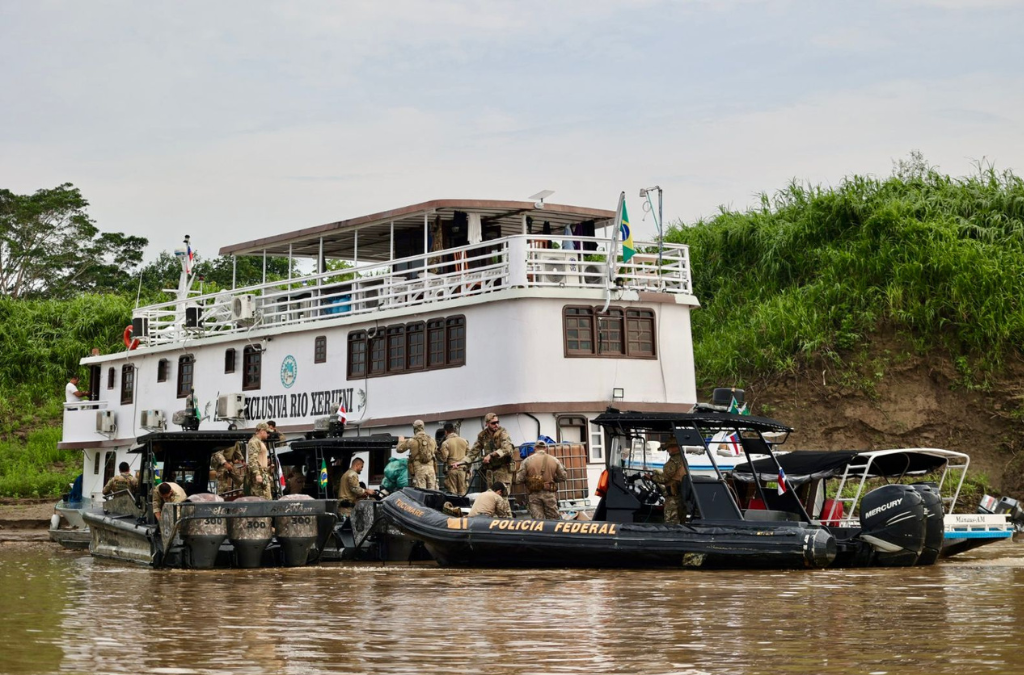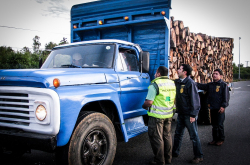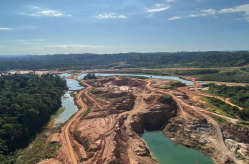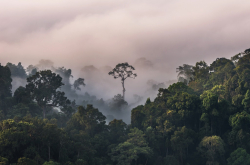LYON, France – INTERPOL has supported the first operation coordinated by the Amazon International Police Cooperation Centre (CCPI Amazônia) in Brazil against illegal gold mining in the Amazon Basin.
In a significant blow to criminal organizations, law enforcement disabled 277 dredges used in illegal gold extraction along the Madeira River, worth an estimated USD 6.8 million.
When factoring in equipment losses, recent gold extraction, environmental and social damages, as well as disrupted profits, the total economic impact on criminal organizations is estimated at approximately USD 193 million.
Importantly, the operation provided authorities with valuable intelligence to identify and dismantle the financial and logistical networks behind illegal mining. This is crucial to disrupting the criminal organizations, rather than individual workers, who are often vulnerable and subject to exploitation.
Led by the Brazilian Federal Police, the operation brought together more than 100 officers across operational, tactical and analytical roles, working in close collaboration with national and international authorities.
Using intelligence and satellite data, authorities mapped over 400 square kilometres of river and forest territory heavily impacted by illegal mining.
INTERPOL supported the operation with real-time database checks and analysis while facilitating information sharing and communication to strengthen trust and collaboration.
An INTERPOL Purple Notice, warning of the detection of a new modus operandi to facilitate transnational gold-smuggling, was published as a direct result of field activities.
INTERPOL Secretary General Valdecy Urquiza said:
“This operation marks a new chapter in our collective effort to protect the Amazon, and is a clear signal that international cooperation via CCPI Amazônia is not just a concept, it is concrete action.”
“United, we can confront the criminal networks that threaten communities and our environment, and INTERPOL remains a steadfast partner in this fight.”
Humberto Freire de Barros, Director of Amazon and Environment Protection of the Brazilian Federal Police said:
“This operation, the first coordinated by the CCPI Amazônia, demonstrates the Centre's capacity to aggregate the efforts of various institutions responsible for combating crime in the Pan-Amazon region. This coordinated work aims not only to disrupt criminal activities but also to enhance investigations and ensure that those involved in the illegal chain are brought to justice.”
During the operation, samples of sand, fabric, and other materials used in gold extraction were collected and submitted for forensic analysis to identify their composition, detect hazardous substances such as mercury and cyanide, and trace their origin. A forensic expert also obtained biological samples from residents to evaluate mercury exposure and assess the potential impact of illegal mining on their health.
INTERPOL continues to support follow-up investigations and any additional joint actions.
Notes to editors
Participating countries, through liaison officers based at the CCPI: Bolivia, Brazil, Colombia, Guyana, Peru and Suriname
Participating Brazilian authorities:
- Federal Police
- Federal Highway Police (PRF)
- Ministry of Labor and Employment (MTE)
- National Public Security Force (FN)
- Public Labor Prosecution Service (MPT)
- Military Police of Amazonas (PMAM)
The support from INTERPOL to Operation Boiuna was provided through Project LEAP, funded by Norway's International Climate and Forest Initiative (NICFI).
Additional support was provided by Project GAIA, through Germany’s Federal Ministry for the Environment, Climate Action, Nature Conservation and Nuclear Safety.




